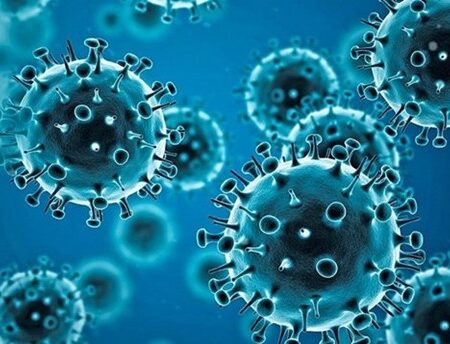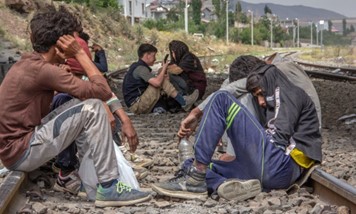1_Introduction:
Once upon a time, there was a young girl named Nadia who lived in a small village in Lebanon. Nadia was excited to start her period, as she had heard from her friends that it was a sign of becoming a woman. However, when her period finally arrived, she was unprepared for the physical and emotional changes that came with it.
Nadia had never received any education or information about menstruation, and she didn’t know how to manage her period safely and comfortably. She was too embarrassed to talk to her mother or other family members about her period, as she had been taught that it was a private matter that should not be discussed openly.
As a result, Nadia struggled to manage her period and experienced a great deal of discomfort and embarrassment. She didn’t know how to use sanitary products or how to clean herself properly, which led to infections and other health problems. She also felt isolated and alone, as she didn’t have anyone to talk to about her experiences.
Eventually, Nadia learned about menstruation from a teacher at her school who had received training on reproductive health. She was relieved to finally have access to accurate information and resources, and she began to feel more confident and comfortable managing her period. She also started to talk to her friends and family members about menstruation, breaking down the stigma and shame that had surrounded it for so long.
Yes, practically all of us have no idea what menstruation is when we ask ourselves, “What is menstruation?”
To begin, ‘’Menstruation’’, or ‘’Period’’, is the periodic shedding of the lining of a woman’s uterus. It is one of the phases of the menstrual cycle. The uterine lining breaks down into a bloody substance. It usually starts at the time of puberty which is typically within the period of adolescence and ends at menopause. ( Lucy O. Idoko, Kingsley C. Okafor, Victoria O. Ayegba, Sarah Bala, Victor B. Evuka, 2022)
This process typically lasts for around 3-7 days and occurs approximately once a month. Menstruation is a normal and healthy process, but it can be accompanied by a range of physical and emotional symptoms, such as cramping, bloating, and mood changes. It’s important for women to have access to menstrual products, such as pads and tampons, and to be informed about how to manage their periods safely and hygienically.
The sexual and reproductive health of women, girls, and all menstruating individuals depends on the availability of safe, cheap menstrual hygiene products. However, obtaining access to such products is a constant struggle for those lacking sufficient financial resources. This lack of availability, sometimes known as “period poverty,” which is made worse by persistent taboos around menstruation, continues to be a major obstacle to menstrual health across the world. Additionally, it may have social and financial repercussions, requiring those who cannot afford menstrual hygiene products to skip work or school while they are menstruating.
Girls in their adolescence frequently lack understanding about menstruation and other aspects of reproductive health, which may be a result of sociocultural obstacles in their communities of origin. It’s crucial to inform teenagers about menstrual health concerns so they can protect themselves and have an impact on those working to advance reproductive health. The study’s primary goal was to determine how much girls and women in Lebanon understood about menstruation hygiene.
It is possible that many youths in Lebanon lack adequate information about menstruation due to cultural taboos and societal stigmas surrounding the topic. Many cultures around the world view menstruation as a taboo subject, which can lead to a lack of open discussion and education about the topic. In some cases, menstruation may be seen as shameful or dirty, which can lead to a lack of information and education for both girls and boys.
This lack of information can have negative consequences for young people, particularly girls, as it can lead to confusion, embarrassment, and a lack of proper menstrual hygiene practices. It can also perpetuate harmful myths and misconceptions about menstruation, such as the idea that menstruating women are impure or that menstruation is a sign of weakness.
2_ Research question:
Why don’t teenagers in Lebanon have adequate information about menstruation or in other word, the “Period”, which goes under the topic of sexual education?
How is it effecting society?
A lack of information about menstruation leads to damaging misconceptions and discrimination and can cause girls to miss out on normal childhood experiences and activities. Stigma, taboos, and myths prevent adolescent girls from the opportunity to learn about menstruation and develop healthy habits.
While most girls get their first period at about 12 years old, some girls will start menstruating as young as nine – so it’s a good idea to start talking early about how your body changes as you grow up.
If you prepare young girls for what’s coming it will make the experience much smoother for her.
By attempting to protect girls and society at large from the problems associated with menstruation, schools and parents must educate girls because girls need reliable information about periods.
By looking at the data collected from our survey, we can see that girls don’t have adequate information about menstruation, which is important because it lets us know that society is neglectful and hasn’t acted on this issue.
3_ Research Theme:
The main subject of our research project is to shed the light on lack of information about menstruation in Lebanon among teenagers, particularly in rural and low-income areas. Many girls are not taught about menstruation by their families or schools, which can lead to confusion and embarrassment when they begin menstruating.
4_ Literature Review:
According to (Women, 2023) Women in Lebanon fight period poverty and taboos to promote menstrual health, many Lebanese women struggle from the insufficient economic resources to have the ability to ensure safe sexual and reproductive health (including menstruation) they also mentioned that safe menstrual hygiene is essential to ensure the sexual and reproductive health of women.
A study conducted by (Central, PubMed, 2022) entitled, “Menstrual health and period poverty in Lebanon during economic crisis: A qualitative analysis of the challenges and recommendations,” lays out the menstrual inequities present in Lebanon today and portrays how it is affecting women and girls throughout the country.
Initial data from this study demonstrate the extent to which women in Lebanon are negatively affected by unsupportive menstrual environments:
76.5% of Lebanese women find it difficult to access menstrual products.
43% report anxiety and stress about MH
36% suffer from physical symptoms.
35.9% avoid doing everyday activities because of poor period management.
46.5% of the surveyed women reported feeling ashamed of their periods.
47% of the participants were fearful that others would know they were menstruating.
As explained by (Girls, 2022), that menstrual inequities present in Lebanon today is affecting women and girls throughout the country. Also, people are being pushed into period poverty, partially due to the fact that the cost of period products rose by 500%.
On the authority of (Bank, 2022) The wellbeing and empowerment of women and teenage girls depend on menstrual health and hygiene (MHH). More than 300 million women in the world are menstruation at any given time. An estimated 500 million people worldwide lack access to menstruation products and sufficient menstrual hygiene management (MHM) facilities. Girls and women need access to WASH facilities, affordable and appropriate menstrual hygiene products, information on good practices, and a welcoming environment where they can manage their menstruation without embarrassment or stigma in order to manage it effectively.
As demonstrated by (Anera, 2022), The lack of menstrual health products has pushed women and girls to resort to unhealthy coping practices, such as using newspapers, tissues, rags or the same sanitary pad for days on end. Lebanon’s economic crisis has exacerbated the problem, especially in Lebanon’s impoverished and overcrowded Palestinian refugee camps. To address this issue, Anera’s public health team organized a series of menstrual hygiene activities as part of the ‘Empowered Communities in Action’ project, funded by UNICEF. Anera held awareness sessions in schools located in five major Palestinian refugee camps across Lebanon, including Nahr El Bared, Beddawi, Burj El Barajneh, Shatila and Ein El Hilweh.
5_ Methodological Approach:
For conducting our research on the issue of menstruation in Lebanon, we used a mixed-methods approach, combining both quantitative and qualitative data collection methods which involves:
1- Survey: we gather information about the prevalence of menstrual hygiene product use, menstrual-related health issues, and attitudes towards menstruation in Lebanon. These surveys are conducted online and target women and girls of different ages and socio-economic backgrounds.
2- Interview: The study was inspired by a girl to explore her attitudes towards menstruation and gather insights into her experiences managing their periods.
3- Literature reviews: This involve reviewing existing literature on the topic, including academic articles, reports, and news articles. This helped us to identify the current state of knowledge on the issue and highlight any gaps in understanding.
6_ Results & Discussion:
As we delve into the results of this research project, it is important to recognize the significance of exploring and understanding menstruation. Menstruation is an essential aspect of reproductive health that is often overlooked, and it is important to continue to promote greater awareness and understanding of this topic. Through research and education, we can help to break down the stigma surrounding menstruation and ensure that everyone has access to the information and resources they need to take care of themselves. The results of this research project will contribute to this ongoing conversation and help to promote greater awareness and understanding of menstruation.
And starting from the questions of our survey that involves
12 questions and 16 responses:
1-What is menstruation?
60.9% answered correctly which is the process of shedding the uterine lining.
While 39.1% answered that is the release of an egg from the ovary.
This shows us that there is still lack of information about what menstruation really is.
2- At what age does menstruation typically start for girls?
63.6% answered between 10-12 years old.
While 36.4% answered between 13-15 years old.

This also shows that there is also a lack of information about what ages menstruation starts
3- What are the common symptoms experienced by individuals during menstruation?
The answers were:

So, this also shows the lack of information about menstruation.
4- How often you change your menstrual product during a normal flow day?
63.6% answered every 2-3 hours.
While 36.4% answered every 4-6 hours.

So, this shows that there is no adequate information about menstrual hygiene among these girls. It’s generally recommended to change menstrual products every 2 to 3 hours to maintain good menstrual hygiene and reduce the risk of infection. This is because menstrual blood can provide a breeding ground for bacteria, and leaving a menstrual product in place for too long can increase the risk of infection. Additionally, changing menstrual products regularly can help to reduce the risk of leaks and other discomforts associated with menstruation. However, the frequency of changing menstrual products can vary depending on factors such as the heaviness of the flow and the type of menstrual product being used. It’s important to pay attention to your body and adjust your menstrual product changing routine accordingly.
5- What are some common menstrual hygiene products available in the markets? The answers were:

This indicates that almost all the girls who filled this survey doesn’t know about all the menstrual products. And it’s common for girls to not know about all the menstrual products available to them, especially if they have not had access to comprehensive menstrual health education.
6- How does menstrual hygiene impact a person’s overall health?
70.3% answered proper menstrual hygiene is essential for maintaining good health.
29.7% answered (Don’t know)
This shows that there is a real danger on girls’ menstrual hygiene and on the overall health of the girls because poor menstrual hygiene can lead to a range of health problems, including infections, rashes, and other skin irritations. When people do not have access to clean and safe menstrual products, they may resort to using unhygienic materials, such as rags or leaves, which can increase the risk of infection. Additionally, poor menstrual hygiene can lead to the development of menstrual disorders, such as irregular periods or heavy bleeding. By practicing good menstrual hygiene, such as changing pads or tampons regularly, washing hands before and after changing menstrual products, and using clean and safe menstrual products, people can help to reduce the risk of health problems during menstruation.
7- Are there any cultural or social taboos associated with menstruation in your society? If yes, please elaborate.
All the answers we got was yes, and here are some elaborated answers:
- Yes, for sure there is. First, I would shed the light on the impact of religion, where in some religions, period is not something to talk about and it is like prohibited.
Second, the surrounding society we live in, in Lebanon, in my opinion, do not have the courage to teach their girls that period is something normal, so we should express our feelings and opinions about. Lastly, the lack of scientific knowledge and awareness that should be presented in all cultures, has a negative impact on youth’s understanding of the period, and from there, misconceptions started.
- Yes, it is shame to discuss topics related to menstruation if there are boys beside.
- Yes, in my village I can’t talk about menstruation.
And this shows that it’s difficult for people to talk about their experiences openly and they may feel uncomfortable, or they may face discrimination or shame because of it.
Additionally, some of the signs that there may be cultural and social taboos associated with menstruation in a society include a lack of education around menstrual health, limited access to menstrual products, and negative attitudes towards menstruation and we see them all in the previous question.
However, it’s important to break down these taboos and have open conversations about menstrual health to ensure that everyone has access to the information and resources they need to stay healthy.
8- Are there any specific dietary or lifestyle recommendations during menstruation? If yes, please explain what your routines during menstruation are.
Some of the answers were:
1-Sure, during my period I always take a balanced diet, rich in iron and vitamins. Also, I usually try to some sports like yoga or meditation or walking outside.
3-Avoid eating beet or cinnamon foods
4-Drinking chamomile or hot drinks in general help reduce menstrual pain
5-Yes, take a warm shower when I wake up change to clothes that doesn’t stain sit do some exercises rest, sleep
6-Some people may have specific dietary or lifestyle recommendations during menstruation, but it varies from person to person.
8-Yes, I go away for spicy food, I decrease the amount of salt in food
7-I think you shouldn’t eat food that cause flatulence during menstruation because it’ll only make things worse. As for me, I usually eat more especially sweets.
There are many cultural and religious beliefs around dietary and lifestyle practices during menstruation. Some people may believe that certain foods should be avoided during menstruation, while others may believe that certain food or practices can help to alleviate menstrual symptoms. However, there is limited scientific evidence to support these beliefs. It’s important to listen to your body and make choices that feel right for you during menstruation. Some people may find that certain foods or practices help them feel better, while others may not notice a difference. It’s important to prioritize self-care and listen to your body’s needs during menstruation.
9-Do you believe that it is important to educate both girls and boys about menstruation? Why or why not?
Some of the answers were:
- Sure! In order to clear these misconceptions that others think. And it will be helpful to achieve gender equality, where girl is as boy, and has her own rights.
- Yes sure, so that the girls will feel more comfortable.
- I don’t have much information to answer this sorry.
- Yes, girls must know what’s going on in their bodies and boys must be aware of what a girl in their life is going through. It’s science overall.
- Yes, because menstruation is a part of every girl’s life, so they’ll be able to manage it safely, hygienically and without shame, as well as for boys as if they’ll understand their sisters, future women. mood swings, in such a period.
- Yes, because in many societies there are a lot of misleading information about the menstruation.
- Yes, I believe it is important to educate both girls and boys about menstruation. Because it helps boys and men to understand and support the women and girls in their lives.
- Yes, it’s important to explain to the girls our age about it in a way that they won’t fear it and tell them it’s importance. I think boys could know in a small way but hopefully they would understand it and not make fun of it and these things.
- Yes, it is important to educate both girls and boys about menstruation to reduce stigma and promote understanding.
- Yes, for sure because it helps both girls and boys to cope with menstruation.
- Sure, it’s very important for boys to also know about the female’s body because in the end we all live together in the same society.
As we see that all the answers were to educate the boys. Since educating boys about menstruation can help to reduce stigma and promote gender equality. Boys who understand menstruation are better equipped to support their female friends and partners during their periods. This can help to reduce shame and embarrassment around menstruation and promote positive attitudes towards menstruation. Additionally, educating boys about menstruation can help to challenge harmful stereotypes and promote gender equality by breaking down gender barriers and promoting empathy and understanding between genders. There are many resources available to help educate boys about menstruation, and it’s important to make sure that this education is included in school curriculums and other educational programs.
10- Do you think that schools should be required to provide education about menstruation? Why? or why not?
Some of the answers were:
- Yes, for promoting the knowledge from childhood, where they would respect the girl more in future and be on her side.
- Yes, because almost every girl lacks information about menstruation
- yes, young girls must be aware of what is going to change in their bodies and how it would it change and know that it’s normal and it’s a stage of their life.
- Yes, to spread awareness among students (both girls & boys)
- I was involved with my friend in providing education about menstruation for some girls and I think it’s ok for schools to talk about it but not with boys only girls.
- Yes, schools should be required to provide education about menstruation to promote health and reduce stigma.
- Yes, why not but only for girls like do specific periods to teach about menstruation.
- Yes, in my opinion it’s very important to educate both girls and boys about this topic in a younger age.
As we can see that all the answers are that schools should provide education about menstruation. Since educating students about menstruation can help to reduce stigma and promote gender equality by challenging harmful stereotypes and promoting positive attitudes towards menstruation. Additionally, students who understand menstruation are better equipped to support their peers who are menstruating and to take care of their own health and wellbeing. It’s important to make sure that this education is inclusive and comprehensive, and that it is provided in a safe and supportive environment.
11-Do you think that the lack of information about menstruation in Lebanon contributes to gender inequality? If yes, explain how please.
Some of the answers were:
- Yes, because we as girls we can’t express our feelings, and this encourage boys to describe it as shame and embarrassment.
- Yes, it can lead to missed school or workdays.
- Somehow yes, as if for example in a working place woman during menstruation (passing through hard times from cramps, pain.) will be working just like men while in my opinion they should be in their houses resting.
- Yes, the lack of information leads to gender inequality because the girls cannot provide the necessary materials for the menstruation.
- Yes, the lack of information about menstruation in Lebanon contributes to gender inequality by perpetuating harmful stereotypes and limiting opportunities for women.
As we can see almost all the answers were yes since the lack of information about menstruation can contribute to gender inequality by perpetuating harmful stereotypes and promoting shame and embarrassment around menstruation. When people are not educated about menstruation, they may believe harmful myths and stereotypes about periods, such as the idea that menstruating people are unclean or should be ashamed of their bodies. This can lead to discrimination, shame, and embarrassment, which can negatively impact people’s mental and physical health. Additionally, the lack of education about menstruation can prevent people from taking care of their own health and wellbeing and can prevent them from supporting their peers who are menstruating. By providing education about menstruation, we can challenge harmful stereotypes, promote gender equality, and promote positive attitudes towards menstruation.
12-What improvements do you think could be made to increase awareness and education about menstruation in Lebanon?
- The MOPH should take advantage, in collaboration with related NGOs and organization to make regular awareness sessions, in all Lebanese regions, especially rural areas.
- Add a subject about this in the curriculum.
- provide more resources and information to schools and community centers.
- Another way is to work with local organizations to distribute free menstrual products to those who need them.
- lectures in schools might be helpful.
- Educate students in school about menstruation since changing something in a society should start & target young people.
- Highlighting the importance of menstruation in the school.
- Awareness campaigns in the society
- I don’t have much information to answer this sorry.
- Improvements could be made by including comprehensive menstrual health education in school curriculums, promoting open discussions about menstruation in communities, and increasing access to menstrual hygiene products and healthcare services. Additionally, reducing cultural and social taboos surrounding menstruation can also help to increase awareness and education about menstruation in Lebanon.
- An increase in spreading awareness about this issue and increasing.
- In the information that helps to improve the cultural situation, in addition to increasing information about menstruation helps girls to adapt.
- I think that sessions about this topic in details should be more implemented in school programs, and there should be awareness campaigns for both guys and girls.
8_Conclusion:
Nadia’s story is a reminder of the importance of education and awareness around menstruation. When girls and women have access to accurate information and resources, they can manage their periods safely and comfortably, and they can break down the stigma and shame that has surrounded menstruation for far too long.
Based on the available research, it appears that there is a lack of information about menstruation in Lebanon, particularly in rural areas and among marginalized communities. This lack of information can lead to negative health outcomes, such as increased risk of infection, as well as social stigma and shame surrounding menstruation. To address these issues, there is a need for comprehensive menstrual health education programs that provide accurate information about menstruation and access to menstrual products, particularly in areas where access to these resources is limited. By raising awareness and providing education and resources, we can work towards breaking down the stigma surrounding menstruation and promoting menstrual health and hygiene for all women and girls in Lebanon.
9_Refrences:
- https://reliefweb.int/report/lebanon/lebanon-women-fight-period-poverty-and-taboos-promote-menstrual-health
- https://www.ncbi.nlm.nih.gov/pmc/articles/PMC9580731/
- https://www.daysforgirls.org/blog/menstrual-health-in-lebanon/
- https://www.worldbank.org/en/topic/water/brief/menstrual-health-and-hygiene











Hello everyone.
Good work done by Mariam Al Afesh and Rola Dimashki about Nadia’s story reminder.
, espencially improvements to be made for increasing awareness and education about menstruation in LEBANON.
Thanks.
Your research sheds light on the importance of raising awareness towards a very crucial health behavior which is considered to be a taboo in this community. I think that it’s a must to include this awareness in school’s curriculum to increase awareness of both girls and boys during their development stages. Thus promoting menstrual health and hygiene.